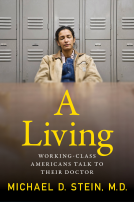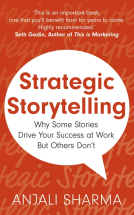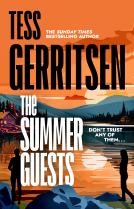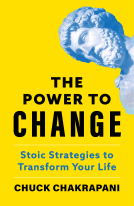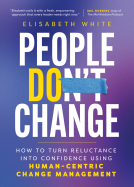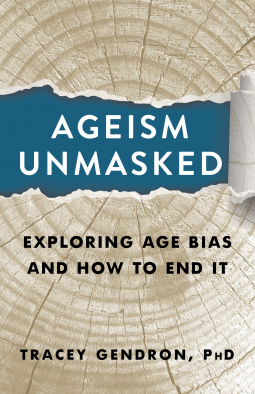
Ageism Unmasked
Exploring Age Bias and How to End It
by Tracey Gendron
This title was previously available on NetGalley and is now archived.
Send NetGalley books directly to your Kindle or Kindle app
1
To read on a Kindle or Kindle app, please add kindle@netgalley.com as an approved email address to receive files in your Amazon account. Click here for step-by-step instructions.
2
Also find your Kindle email address within your Amazon account, and enter it here.
Pub Date 1 Mar 2022 | Archive Date 30 Jan 2022
Steerforth Press | Steerforth
Talking about this book? Use #AgeismUnmasked #NetGalley. More hashtag tips!
Description
This bold account of the history and present-day realities of ageism by a nationally recognized gerontologist and speaker uncovers ageism's roots, impact, and how each of us can create a new reality of elderhood.
Ageism Unmasked shifts the lens, enabling us to see that we tolerate, and sometimes actively promote, attitudes and behaviors toward differently aged people that we would reject and condemn if applied to any other group. It peels back the layers to expose how cultural norms and unconscious prejudices have seeped into our lives, silently shaping our treatment of others based on their age and our own misconceptions about aging—and about ourselves.
Offering an all-inclusive approach, Dr. Tracey Gendron reveals the biases behind our false understanding of aging, sharing powerful opportunities for personal growth along with strategies to help create an anti-ageist society.
Ageism Unmasked continues Dr. Gendron's transformative work inspiring people of all ages to embrace aging as our universal and lifelong process of developing over time — biologically, psychologically, socially, and spiritually.
Advance Praise
“Let Tracey Gendron take you on a unique, profound, well-written and well-explained exploration of ageism. Personal experiences of her own family history –- similar to those that many of us have experienced –- serve to connect Gendron's years of study and research on ageism. As the title suggests, Gendron 'unmasks' what ageism really is, in practice, in society, in the workplace, in our daily lives. Ageism is finally making the headlines and becoming a subject of global attention thanks to researchers like Gendron, who for decades have been trying to translate knowledge from their field for a broad audience without over-simplifying or trivializing ideas and information that for too long has remained in university lecture halls and gerontology conferences. Not reading this book would perhaps be your biggest mistake of the year."— Prof. Nic Palmarini, Director of the UK's National Innovation Centre for Ageing
"Books that combine the rigor of a scholar with the passion of an advocate are rare and invaluable. Ageism Unmasked is one of them. With wit and skill, Tracey Gendron describes the ongoing, multifaceted nature of human aging; deconstructs the historical and social forces that frame it as decline; and asks us to think boldly and imaginatively about the years ahead. Ageism Unmasked is essential reading for everyone who aspires to purpose and meaning right to the end, and is willing to challenge the ageism and ableism that stand in our way." — Ashton Applewhite, author of This Chair Rocks: A Manifesto Against Ageism
"This book is a must read for anyone who is aging — and that is every one of us! Ageism Unmasked takes the reader on a journey of understanding the roots of ageism, its impact and what each of us can do to create a new reality of elderhood. It’s a fascinating and inspirational read — a true game-changer and society-changer!" — Jill Vitale-Aussem, author of Disrupting the Status Quo of Senior Living
"This book manages the near impossible feat of being simultaneously broad, deep, and impactful. These pages treat readers to a fascinating exploration of where ageism comes from and what we can do to unmask (and undo) its pernicious workings. If Ageism Unmasked is as widely read and studied as it deserves to be, we will all be better off for it." — Dr. Bill Thomas, author of Aging Magnificently
"Ageism Unmasked challenged me to think in new ways about unconscious age bias and the insidious way it shows up (even when unwelcomed) in everyday attitudes and actions. A must-read for policymakers, advertisers, healthcare workers and aging services professionals and anyone grappling with their own age-related issues or those of an older relative or friend, Ageism Unmasked offers insight and guidance on concrete actions individuals and organizations alike can take in their fight against age bias and discrimination." — Elizabeth White, author of 55, Underemployed and Faking Normal
"Tracey Gendron has written a fascinating exploration of the one '-ism' that impacts all of us, at every point in our lives. This book will challenge everything you thought you knew about ageism and how it affects you personally, no matter who or how old you are, and shows how all of us can play a part in overturning this ridiculous barrier to doing better business and living happier lives." — Cindy Gallop, Founder & CEO of MakeLoveNotPorn
Available Editions
| EDITION | Other Format |
| ISBN | 9781586423223 |
| PRICE | US$19.95 (USD) |
| PAGES | 192 |
Featured Reviews
 Hilary M, Educator
Hilary M, Educator
Wow. You know how when you buy a new car, suddenly you see the same kind of car everywhere, even if you never noticed it before? That's how I feel after reading Ageism Unmasked. Before, I was sort of aware of ageism in things like hiring, but I never realized how fully it is a part of the fabric of our society. Now, not a day goes by without me noticing numerous examples of ageism in media, policies, and everyday language. Gendron does a great job of explaining the origins of ageism, why it's a problem, and the cultural shifts that will be necessary for us to combat it. A must read for anyone who is interested in social justice and equity.
There is something about enlightenment that's frightening and with this book, I now find myself checking myself and my environment every time I encounter bias towards ageing and how youth is cherished and everything else that falls short of this is cast aside, from the media to the stories we tell ourselves and with technology and social media, it's even worse.
I love how detailed it is and the author Gendron unravels each aspect slowly, so much so that as the reader you do not feel chastised rather compelled to have a change of heart.
Thanks Netgalley for the eARC.
 Shelly H, Reviewer
Shelly H, Reviewer
Author Tracey Gendron does a fabulous job explaining ageism the social forces behind it and the impacts. As a woman now on the other side of 45, I have begun to notice unconscious age bias more and more in the workplace and beyond, especially as a female. I don’t have a desperate need to stay young and I embrace the wisdom that comes with every decade, but I notice people around me looking to tweak themselves in order to not feel the pinch of ageism. In fact, sometimes I find myself wondering if things wouldn’t be a little more advantageous if I too attempted to look younger.
The author sets out to help us reset our expectations for getting older. As such, I find this book both enlightening and encouraging. If we are blessed, we will all age. We should let each other age gracefully and purposely.
 Mallika R, Reviewer
Mallika R, Reviewer
My thanks to Steerforth Press and NetGalley for a review copy of this book.
In Ageism Unmasked: Exploring Age Bias and How to End It, author Tracey Gendron demonstrates how deep-seated ageism or discrimination based on age is in our society, be it in laws and policies or everyday functioning, and how, for the older segment of society, this has become (wrongly) conflated with ableism (discrimination based on [perceived] disability).
Ageism or discrimination based on age can take many forms—be it against younger persons who are stereotyped as reckless or immature or older persons who are seen as non-contributing members of society, and often associated with illness and lack of ability to function fully (in fact different ‘generations’ as we understand them today are often lumped together and associated with different characteristics). But it is discrimination against the second group—the elderly—that has the more severe consequences for it results in discrimination, marginalisation, segregation, and lack of opportunity to live a ‘normal’ and indeed ‘full’ life.
Starting with explaining the different forms that ageism takes (and this can be positive, with intent to benefit the target population), and historical attitudes towards older persons, Gendron shows how from microaggressions in the form of small everyday jokes and comments (to birthday cards); changed meanings of terms like ‘older person’ or ‘generation’; the concept of retirement and its becoming equated with being no longer ‘useful’; to the anti-ageing advertising (products to keep us ‘young’), the very notion of aging which should mean no more than the number of years one has had lived has become equated to disease and decrepitude (shockingly even classified by the WHO as such). What we lose sight of in these approaches is the fact that aging is something that all of us are going through at every moment, and not some ‘disease’ that we become suddenly afflicted with. Not only that, age does not necessarily mean illness or disability—the group we classify as ‘older persons’ is as heterogeneous as society as a whole is, and lumping together, segregating and stereotyping is not only negatively affecting the elderly themselves but also in a sense society as a whole; for negative perceptions of being ‘old’ or seeing ‘death’ for that matter as something to be ‘defeated’, makes everyone fear what is a natural process, which ends up in these stereotypes actually being realised in those that fear them the most, as well as depriving both groups of meaningful interactions with each other in daily life. Another important point Gendron highlights is how striving to remain young and ‘independent’ has become so normalised that we begin to see any form of dependence or caregiving as undesirable (both sides—the carer and the cared-for), when it is actually the case that as humans, we are dependent beings, and not only that, caregiving can be an enriching experience for both sides. These discriminatory attitudes and notions have also become part of law and policy which again attempts to lump together people based on age, defining all older persons as in need of care and vulnerable.
As a consequence of both social attitudes and policies, the elderly are unable to live life as full persons (with ‘human rights’ as we understand them), with society as a whole lacking the needed structural inclusivity, and impeding rather than enabling all its members from living lives with dignity.
The author goes on to explore various ways in which we can address these attitudes and fears, at a personal level for instance by understanding our own perceptions and fears, and gaining more awareness, as well as for instance by recognising the meaningful roles that elders can play in society (that includes both those that would be counted as economic contributions and others).
I think the author has done a great job in helping readers recognise how (even if we don’t believe in the worst negative stereotypes) small acts in the everyday from simple comments like ‘how young you look’, or ‘you haven’t aged at all’, to fairy tales and children’s stories (with wicked old witches or ‘hags’, or even Cruella for that matter), to the advertising we are constantly subjected to (even if we are aware of their intentions) can and do embed these stereotypes even deeper in society and in ourselves. Recognising these and other aspects that she points out makes for an important starting point for all of us to begin addressing this issue that has become so entrenched in society and prevents everyone whatever ‘group’ they might fall in from living life with all its shades and richness.
 Carol C, Reviewer
Carol C, Reviewer
They say ageism is the last 'acceptable' form of discrimination. But it shouldn't be!! As we get older, we will all experience some form of age discrimination whether it's on the job, not being taken seriously, being the brunt of 'good natured' jokes, etc. In our youth-oriented culture, it's been the norm for people to try to appear and seem younger than their years. We shouldn't have to. We should be accepted at whatever age we happen to be.
Age discrimination is apparent in tv shows (bumbling grandma and grandpa with memory loss and physical handicaps. Oh yeah, real funny - until it hits you!), commercials, and just general society.
This book does a good job of pointing out how ageism has become accepted in our world - - and how we can go about changing that.
A valuable book for any age.





